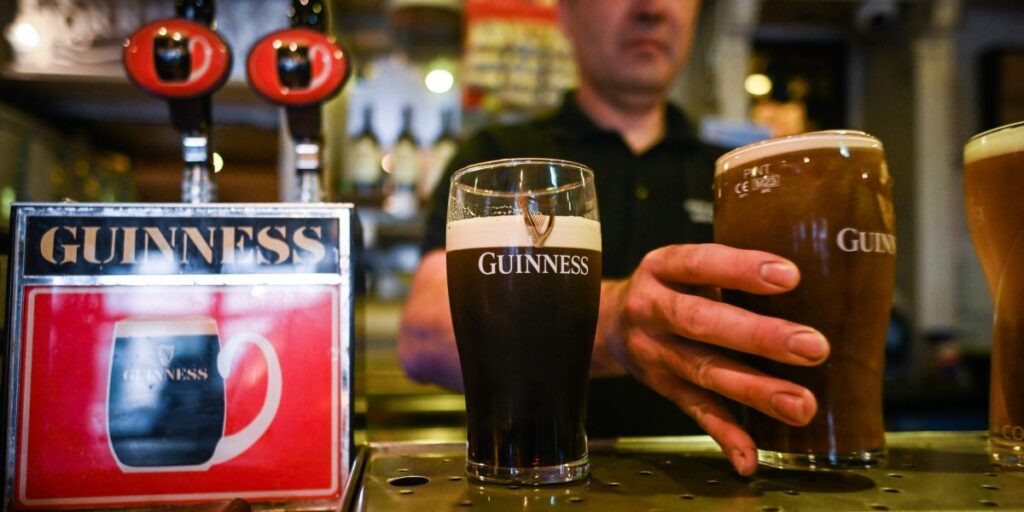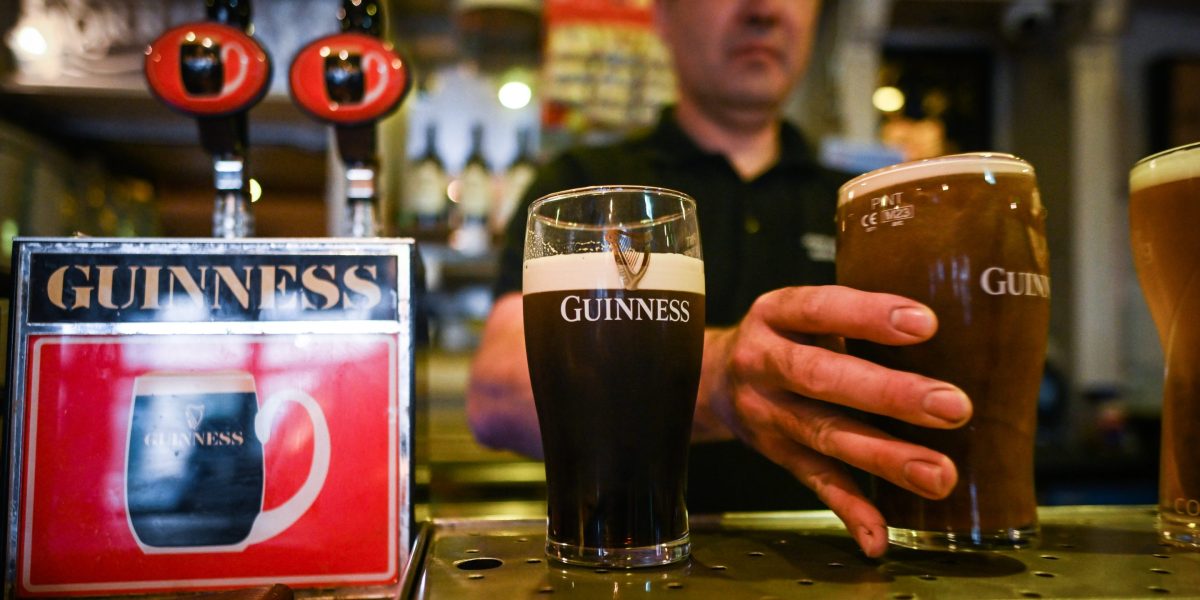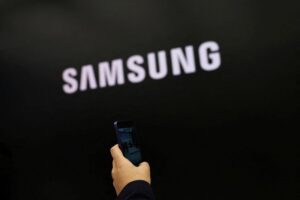Johnnie Walker maker Diageo sees first sales drop since the pandemic—but Guinness and ready-made cocktails save the day
Diageo’s CEO Debra Crew said that despite pockets of weakness, the “merit of our portfolio is that we really do have very broad options for the consumer.”


People aren’t drinking as much as they used to. And no one knows that better than Diageo, the alcohol giant behind Johnnie Walker, Don Julio and Guinness.
The London-headquartered company saw its net sales decline for the first time since COVID-19, down 1.4% to $20.3 billion in the 12 months to June compared to the same period a year earlier.
Much of the decline was down to Diageo’s business in Latin America and the Caribbean, where volumes slipped by 21% as the company tried to normalize a pandemic-era inventory glut.
The group has faced pressure as budget-tight consumers switch to cheaper alcohol brands and look away from Diageo’s suite of premium spirits. Diageo’s peers share some of its struggles—for instance, Remy Cointreau, the cognac maker, saw its quarterly sales slip last week. LVMH’s wine and spirits business has also struggled to pick its sales up in the first half of the year.
The company issued a profit warning in November, anticipating weaker results in the fiscal year’s second half.
“Interest rates are high, therefore retailers are also likely to remain cautious. We will stay focused on strengthening the resilience of our business and winning with the consumer,” Diageo’s CEO Debra Crew told reporters during a call on Tuesday. She said that despite pockets of downtrading, the “merit of our portfolio is that we really do have very broad options for the consumer” in terms of product range and price points.
Despite the macroeconomic volatility impacting Diageo’s business, some areas of Diageo’s business kept the business humming. For instance, in its biggest market—the U.S.—the sales of spirits-based cocktails, such as Ketel One Espresso Martini and Tanqueray Negroni, jumped 15%.
The rise of women Guinness drinkers
In Europe, overall net sales grew 3%, thanks to Diageo’s beer stronghold with Guinness. Women have increasingly been choosing Guinness—the brand noted a 27% increase between the last two fiscal years, which has helped boost the stout’s popularity.
“We believe demographic trends, rising incomes in the developing world, spirits, gaining share from beer and wine and long-term premiumization will drive attractive underlying growth in our industry,” Crew said.
Diageo has also seen key leadership changes in recent months. Crew took over from long-time CEO Ivan Menezes in early 2023. CFO Lavanya Chandrashekar also announced she would be stepping down this year. Set against these shake-ups, shrinking profits may make it harder to calm investors’ nerves.
“The guidance is very vague and won’t help improve sentiment, pointing to a continued challenging consumer environment into FY25 and ongoing pressures on margins,” Bernstein analyst Trevor Stirling said in a note Tuesday.
The London-listed company said it was addressing some of its weaknesses, including strengthening its consumer insights to better grasp how and when drinkers consume different beverages.
Diageo expects net sales to increase by 5%-7% in the medium term.
The company’s shares were down 9.4% as of 10 a.m. London time.





